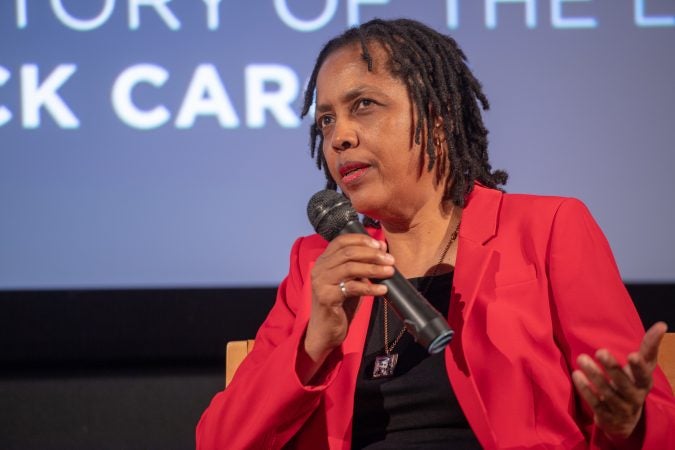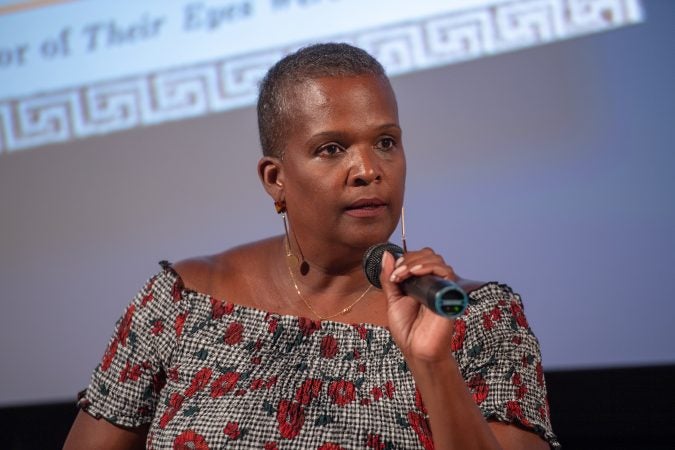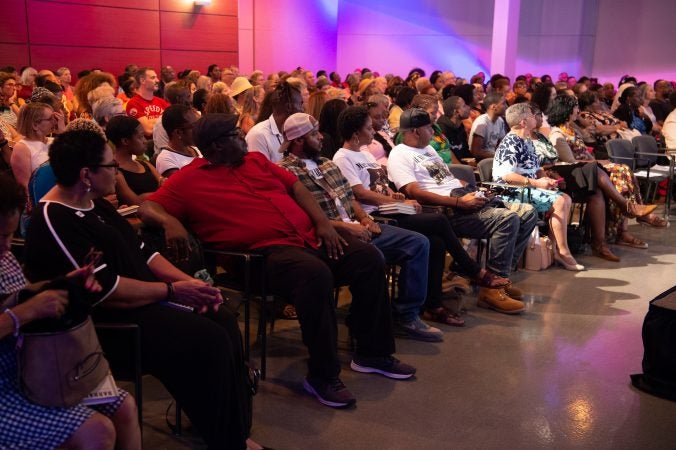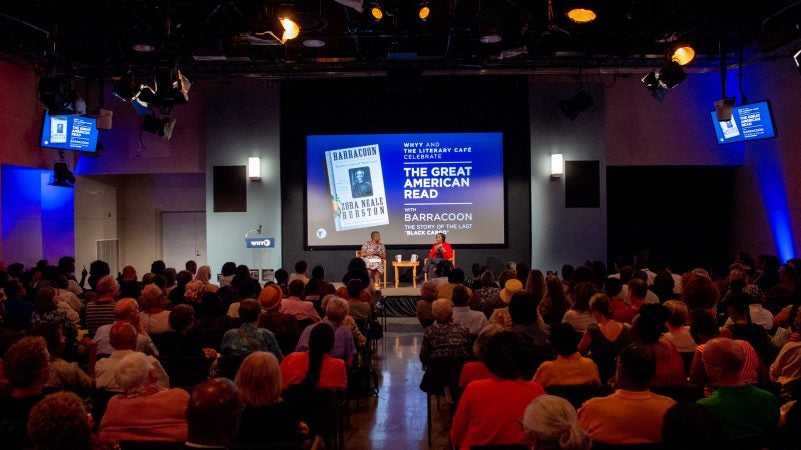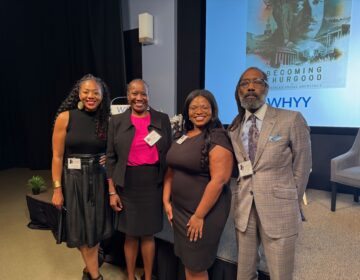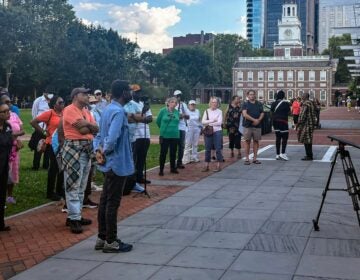‘Barracoon’ spurs a long-overdue conversation about last known slave-ship survivor
"Barracoon: The Story of the Last 'Black Cargo,'" one of the only surviving first-person accounts of the transatlantic slave trade, was published in May.
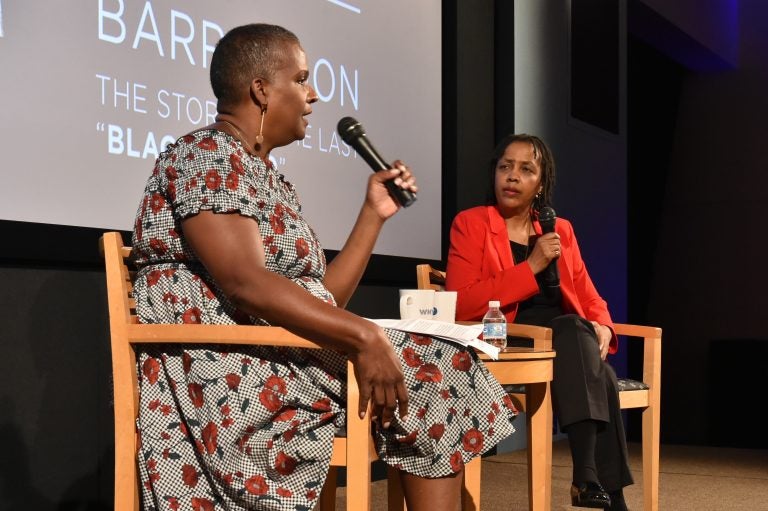
WHYY reporter Annette John-Hall interviews Deborah Plant, editor of "Barracoon: The Story of the Last 'Black Cargo.'" (Daniel Burke for WHYY)
“Barracoon: The Story of the Last ‘Black Cargo,'” one of the only surviving first-person accounts of the transatlantic slave trade, was published in May after sitting in a Howard University archive for decades.
But it’s a story Garry Lumbers says he grew up knowing by heart.
Lumbers is a descendant of the book’s subject, Oluale Kossula who was captured in West Africa when he was 19 years old and brought to America on the Clotilda, the last known slave ship. Kossula was brought to Mobile, Alabama to work on the docks where he became known by the slave name Cudjo Lewis. After five years in bondage, Lewis didn’t know he was free until Union soldiers arrived.
“My uncles, my grandmomma, they told me the story everyday, and then they would quiz me on it. I didn’t know I was being quizzed,” said Lumbers, Lewis’ great-great-grandson who says he grew up in the house Lewis built. “My uncle he would tell me a part of the story and then my other uncle would ask me the next day, and I never knew what they was doing.
“But then over the years I would get older and my grandmomma would say, ‘You tell the children.’ And I’m like, ‘What does she mean tell the children?’ But now I know that she was telling me to keep the story going,” he said.
Lumbers, who now lives in Brookhaven, Pa., was in the audience Tuesday night during an event hosted by WHYY in partnership with the Literary Café featuring an interview with the book’s editor Deborah Plant.
Plant is a scholar of African-American literature who has studied the life and works of the anthropologist and novelist Zora Neale Hurston. In 1927 Hurston first traveled to Alabama to interview Lewis who was then 86 years old and believed to be the last survivor of the last slave ship. Hurston spent months getting Lewis to open up about his memories of Africa and being brought to America where he was enslaved for five years until the end of the Civil War, and about how he helped found the community of Africatown in Alabama.
Hurston turned Lewis’ account into a book called “Barracoon,” but because she compiled Lewis’ story in his vernacular, publishers refused to take it on back in the early 1930s.
In a conversation with WHYY’s Annette John-Hall, Plant said it was important for Hurston to preserve Lewis’ way of speaking.
“Embedded in the language is the entire history of a person,” said Plant when asked about Hurston’s intentions as a pioneering anthropologist. “So what we have is the history of a people who were violently uprooted, who experienced all kinds of trauma in a continuum that if we erase that language, we erase that history.”
John-Hall, who is also African-American, said she found parallels in Kossula’s speech to those of her grandparents.
“I mean, who hasn’t heard their grandma say, ‘Oh lord?’ ” she asked. “It was a powerful connection for me.”
Lumbers says he is satisfied with Hurston’s portrayal of his great-great-grandfather.
“My uncles, they talk that way, that’s just the way they talked,” he said. “You’ve got to realize nobody over here spoke his language. Only the people that was on the flotilla actually spoke his language, so I think that she did a good job.”
Lumbers hopes the book’s publicity sheds new light on the history of the tight-knit African-American community Lewis built in Alabama.
“I knew the stories of the struggle, of the survival, and the unity he brought to that area. If anything needed to be done, he was the head of it,” said Lumbers.
“We used to have stores, gas stations, motels, even a post office. Now our community has fallen on hard times,” he added. “All the years that this has been going on, nobody has recognized my family. We feel we’ve been stepped over. So I can’t say it hurt, but I can say I feel what Cudjo felt when he said he wanted to go home.”
WHYY is your source for fact-based, in-depth journalism and information. As a nonprofit organization, we rely on financial support from readers like you. Please give today.


